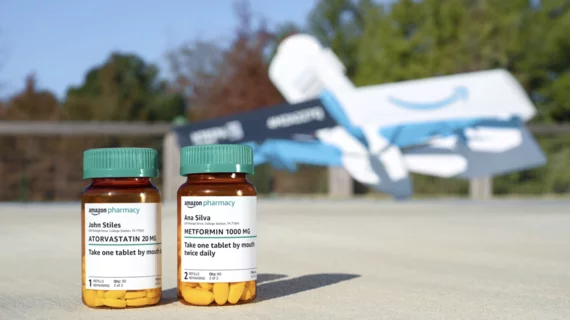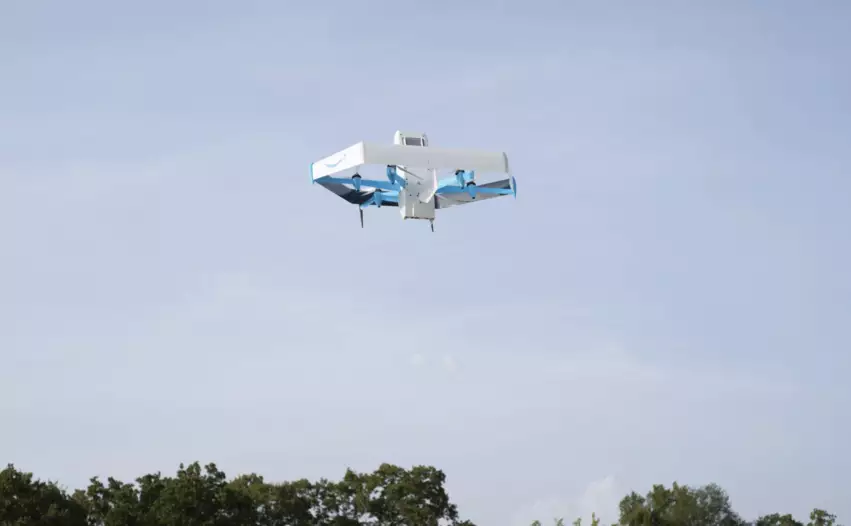Amazon Pharmacy has officially started using a drone delivery service to ship prescription medications. The new service is being offered to customers in College Station, Texas, at no additional cost. According to Amazon, all deliveries will be completed within one hour of the order being placed.
“We’re taught from the first days of medical school that there is a golden window that matters in clinical medicine,” Vin Gupta, MD, chief medical officer for Amazon Pharmacy, said in a prepared statement. “That’s the time between when a patient feels unwell and when they’re able to get treatment. We’re working hard at Amazon to dramatically narrow the golden window from diagnosis to treatment, and drone delivery marks a significant step forward. Whether it’s an infectious disease or respiratory illness, early intervention can be critical to improving patient outcomes.”
The Amazon drones fly 40 to 120 meters above the ground, using a series of sensors and cameras to remain stable and navigate around trees, buildings and power lines as needed. Once a drone reaches its destination, it slowly lowers itself above the target and releases the package. Customers do not interact with the drone in any way.
“Our drones fly over traffic, eliminating the excess time a customer’s package might spend in transit on the road,” Calsee Hendrickson, director of product and program management at Prime Air, said in the same Amazon statement. “That’s the beauty of drone delivery, and medications were the first thing our customers said they also want delivered quickly via drone. Speed and convenience top the wish list for health purchases.”
At this time, medications are the only items Amazon is delivering using these drones—additional items such as food and diapers will not be included in any packages, even if ordered on the same day. This is because Amazon Pharmacy locations are separate from the standard Amazon distribution centers; they do not stock non-clinical items.


